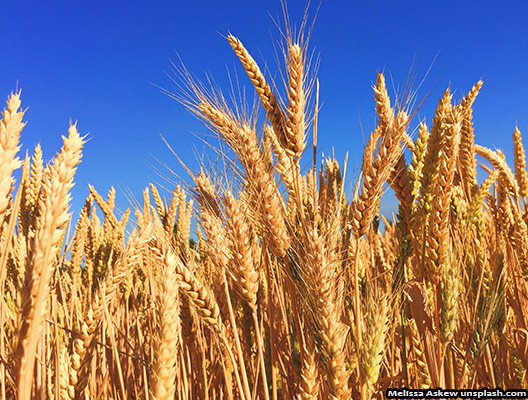

As the holidays approach throughout the year, I’ll be adding more info and interesting tidbits for each one. If you’d like to be notified when I post the updates, subscribe to my blog at the bottom of this page.
Spring Feasts
Passover
Passover commemorates when God passed through Egypt and judged the people and their gods. When He passed through, He took the life of every firstborn throughout the land. He “passed over” those Israelite houses whose inhabitants obeyed His earlier command to sacrifice an unblemished lamb per household. They were to apply its blood to the doorframes of their homes. This blood served as a sign that a perfect lamb had died in place of every firstborn living there.
Each unblemished Passover lamb points to Yeshua as our own unblemished (sinless) Passover Lamb. God judged Yeshua for all the sins of humanity—past, present, and future—and He suffered the punishment of death for those sins in our place. God offers each one of us the choice to receive this free gift or to refuse it and be judged ourselves for our own sins.

Feast of Unleavened Bread
Leaven was excluded from the bread because there wasn’t enough time for the bread to rise. In Jewish thought, leaven is a symbol for sin (Barakhah 7a, Talmud). The Feast of Unleavened Bread points to Yeshua’s burial, when His sinless (unleavened) body laid in the grave (before He rose again).
Nowadays, Passover and the Feast of Unleavened Bread are combined and celebrated as one holiday (Passover) for eight nights and days.
First Fruits
Resurrection Day/Easter
First Fruits celebrates the first produce of the barley harvest in Israel, which was offered to God. It points to Yeshua’s resurrection. Just as a barley seed is buried before the barley can rise up from the ground, so Yeshua was buried and rose up from the dead. He is the first fruits of God’s harvest. The Feast of Trumpets may very well point to the later fruits of God’s harvest.

Weeks
Shavuot/Pentecost
Shavuot is the Hebrew word for weeks. It celebrates Israel’s wheat harvest, which is seven weeks after Passover. God’s creation of His church occurred on this holiday, when He filled the earliest followers of Yeshua with His Holy Spirit. Now, followers of Yeshua receive the Holy Spirit at the moment of salvation.

Fall Feasts
Feast of Trumpets
Rosh Hashanah
The books of Leviticus and Numbers speak of this special sabbath that calls for the blowing of trumpets. This holy day might very well point to the rapture of Yeshua’s followers—the later fruits of God’s harvest, referring back to First Fruits—at the sounding of the Trumpet of God.

Day of Atonement
Yom Kippur
On this holy day, God required Israel’s high priest to lay His hands on a scapegoat and symbolically transfer onto it all of Israel’s sins for that year. While this goat was banished into the wilderness, another goat was offered as a sin sacrifice. Both goats point to Yeshua, who is our own sin-bearer and sin-sacrifice. In the future, all of Israel will be saved on the Day of Atonement.

Feast of Tabernacles
Sukkot
After God rescued the Israelites from Egyptian slavery, they lived in tabernacles (tents) during the forty years He led them through the desert. This holiday celebrates His provision for them during that time. Ancient traditions developed for this holiday, and they included meaningful symbols with which Yeshua identified Himself. This holiday points to His millennial rule on King David’s throne, when He will govern Israel and the nations.
More
Hanukkah
Feast of Dedication
Antiochus Epiphanes desecrated the Temple and attempted to destroy the Jewish people. But God intervened, and the Jewish people survived. They were able to rebuild the Temple altar and rededicate it to God. Then they purified the entire Temple. If Antiochus had been successful in wiping out the Jewish people, then Yeshua would have never been born.
The book of John reports that, at the Temple during Hanukkah, Jewish leaders confronted Yeshua about His identity. There are some interesting contrasts between Yeshua’s identity and that of Antiochus Epiphanes.

Purim
Feast of Lots
Purim celebrates the victory over the Persian Prime Minister, Haman, who was determined to destroy the Jewish people. Special cookies, carnivals, costumes, and songs are all part of the fun during this holiday.
Had Haman succeeded with his diabolical plan, then Yeshua would have never been born. Purim subtly points to Yeshua as the seed of the woman who would bruise Satan’s head, as mentioned in Genesis 3:15.

